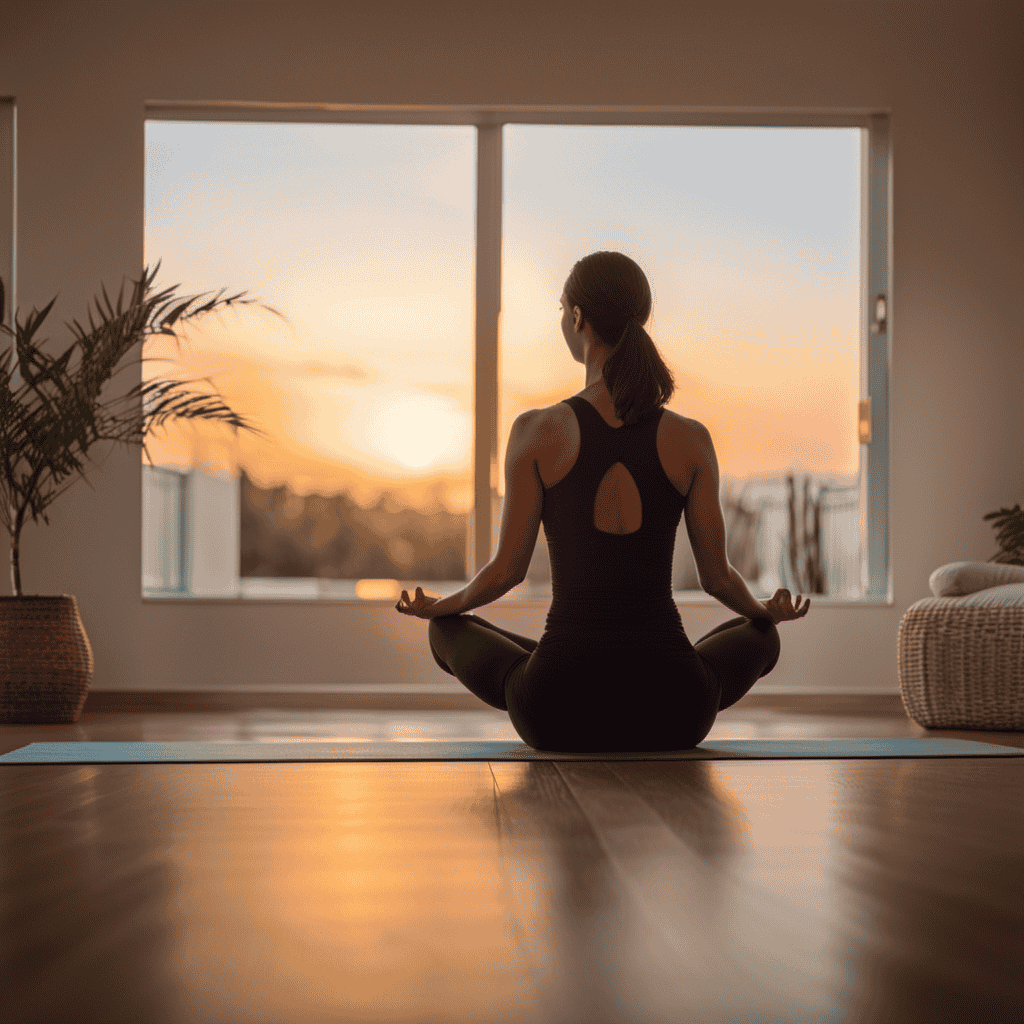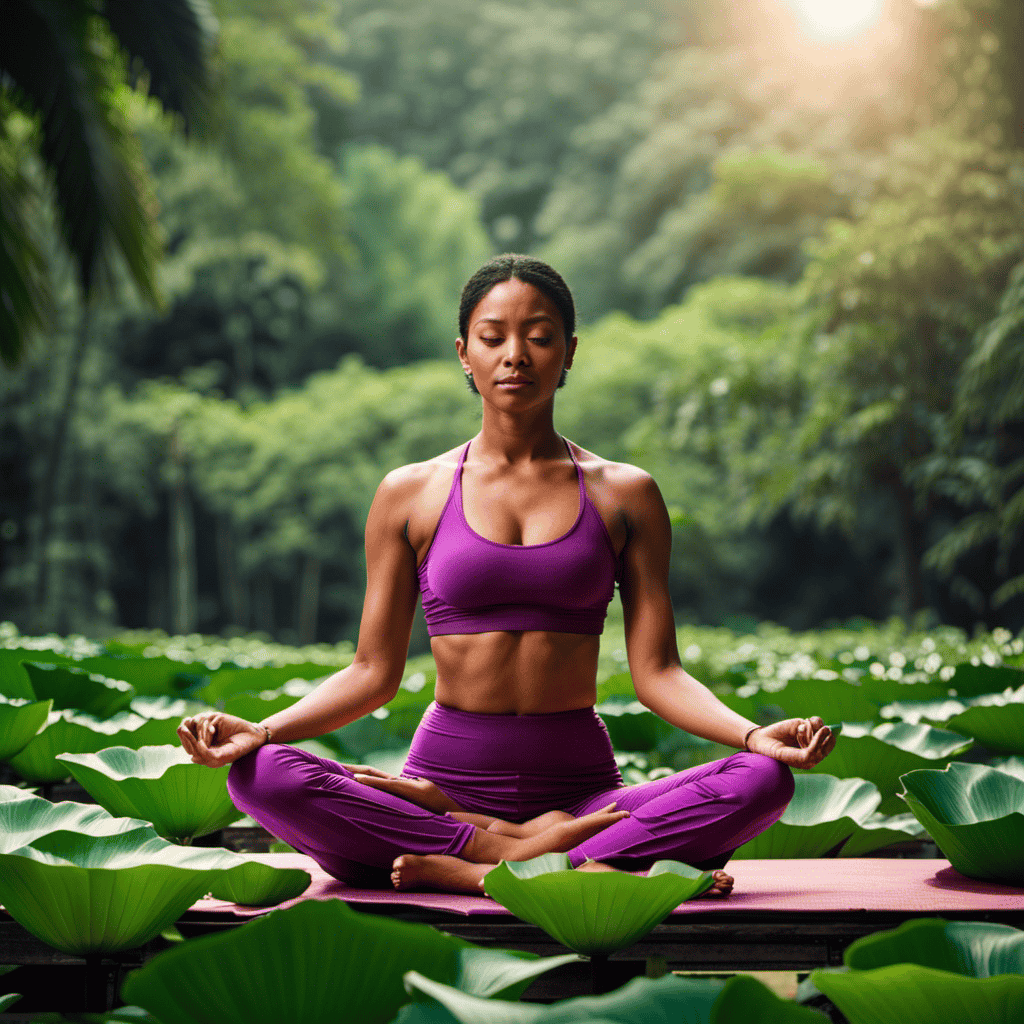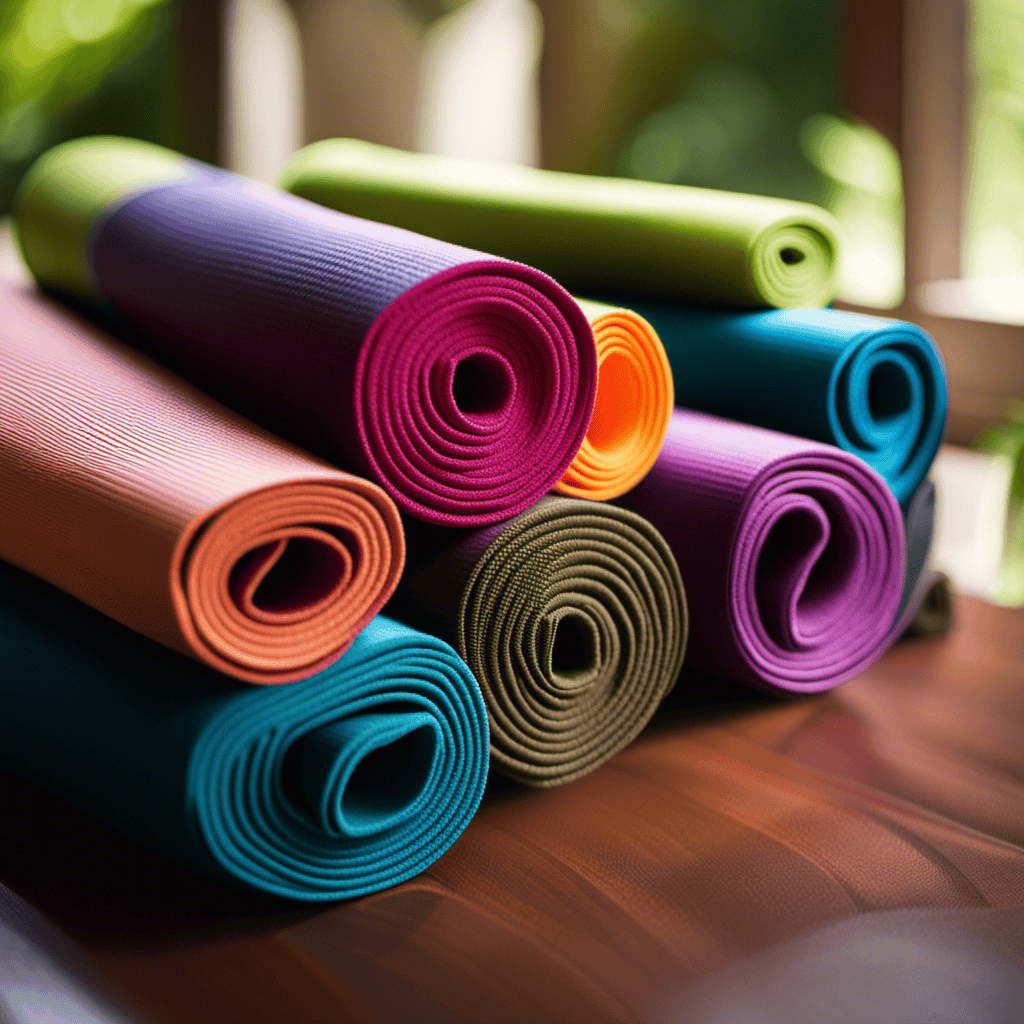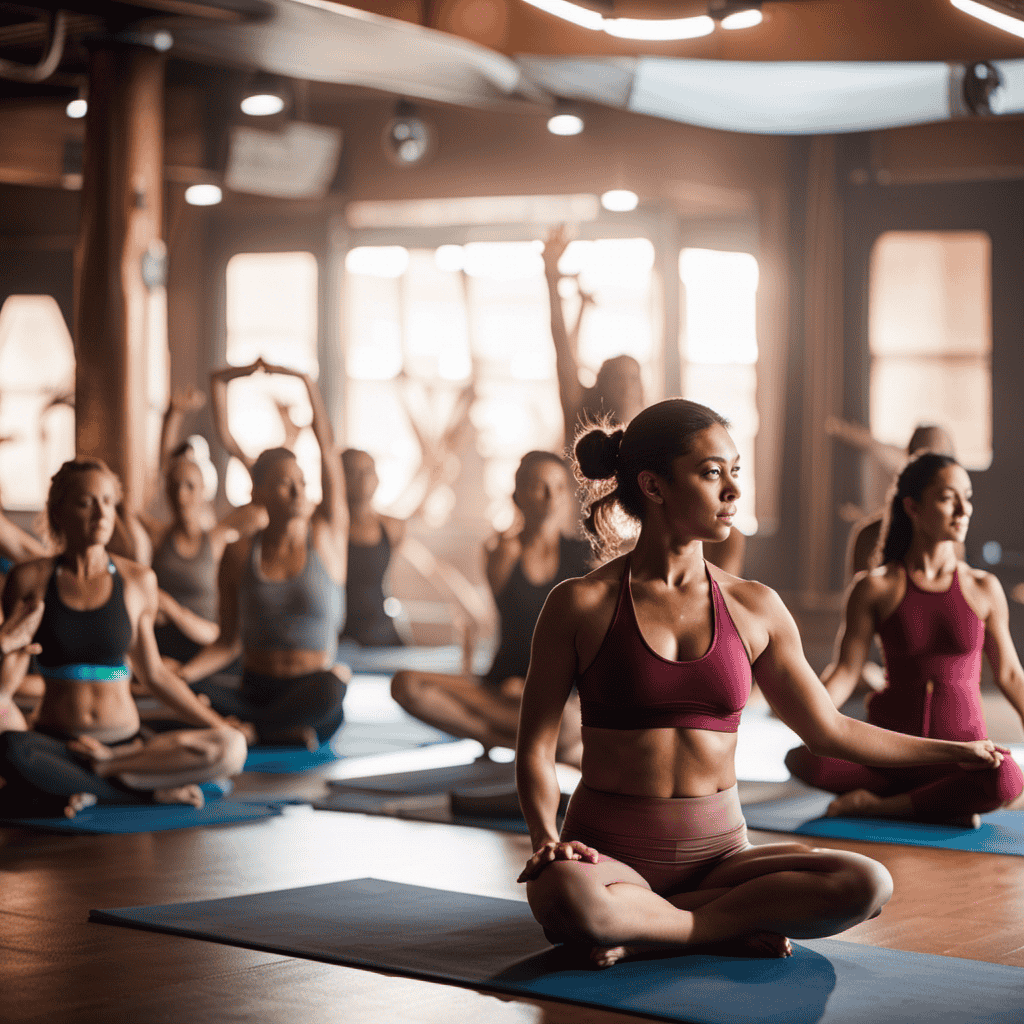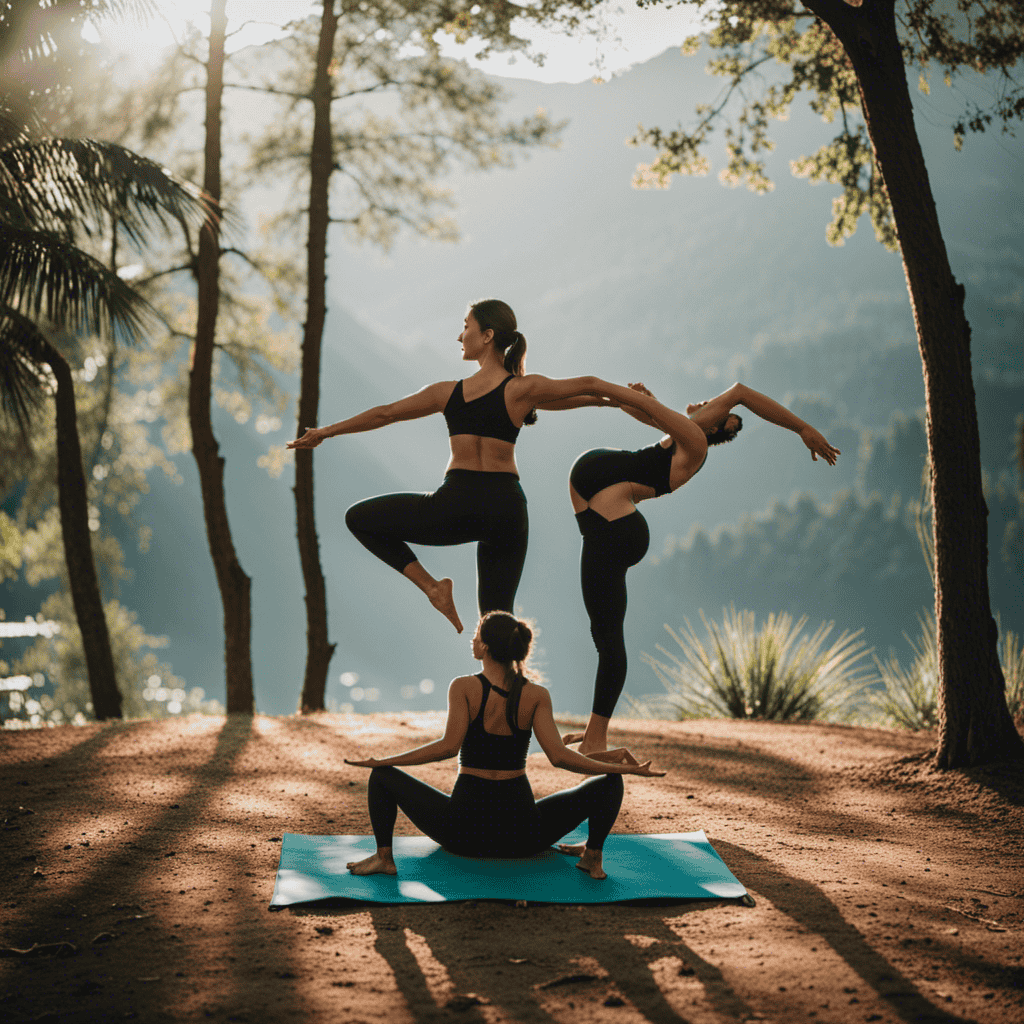Timing is crucial in yoga, as finding the right time to practice can greatly impact the results. Just like how the sun follows its own schedule, our bodies also have their own unique rhythms and preferences.
In this article, we will explore the benefits of morning yoga, which can energize our days and prepare us for the challenges ahead.
We will also delve into the advantages of evening yoga, which helps us relax and unwind, promoting a restful sleep.
So, join me on this journey of self-discovery as we find our perfect yoga time to energize our mornings and relax our evenings.
Key Takeaways
- Personal preferences and physical needs influence the best time for yoga.
- Morning yoga energizes the day, improves focus and concentration, calms the mind, and prepares the body for physical activities.
- Evening yoga helps relax the body and mind before sleep, promotes better sleep quality, relieves physical strain and reduces stress and anxiety levels.
- Overall, yoga improves flexibility, balance, strength, breathing capacity, sleep quality, metabolism, digestion, and connects with the body and mind. Regular practice, adapting to individual needs, and finding the optimal practice schedule are key for maximizing the benefits of yoga.
Determining the best time
I need to consider my personal preferences and physical needs in order to determine the best time for me to do yoga.
Factors to consider when determining the best time for yoga include personal preferences and physical needs. It’s important to listen to my body and understand how it responds to physical activity.
Some people find that practicing yoga in the morning energizes their day, improves focus, and prepares their body for physical activities. On the other hand, practicing yoga in the evening can help relax the body and mind before sleep, promote better sleep quality, and reduce stress and anxiety levels.
Ultimately, it’s about finding what works best for me. I can experiment with different times and pay attention to how my body feels to find my optimal yoga time.
Benefits of morning yoga
Energizing the day, morning yoga improves focus, concentration, and prepares the body for physical activities. It has become an essential part of my morning routine, setting a positive tone for the rest of the day.
As I roll out my mat and move through the poses, I feel a surge of energy and mental clarity. The deep breathing and gentle stretches awaken my body, helping me shake off any residual sleepiness.
Not only does morning yoga increase my focus, but it also enhances my productivity throughout the day. It is like a cup of coffee for my mind, providing a natural boost that keeps me alert and engaged.
By incorporating morning yoga into my routine, I start my day with intention and set the stage for success.
Benefits of evening yoga
Engaging in evening yoga can promote relaxation, improve sleep quality, and reduce stress and anxiety levels. It is the perfect way to wind down after a long day and release any physical strain or tension built up in the body.
By practicing gentle stretches and poses, the muscles are able to relax, allowing for a deeper and more restful sleep. The calming nature of evening yoga also helps to quiet the mind, allowing for a sense of peace and tranquility before bedtime. This can be particularly beneficial for those who struggle with insomnia or have difficulty falling asleep.
So why not carve out some time in the evening to take care of yourself and experience the amazing benefits of evening yoga?
- Release the stress and tension of the day
- Create a peaceful and calm state of mind
- Prepare the body for a restful night’s sleep
Overall benefits of yoga
Enhancing flexibility, balance, and strength, yoga also improves breathing capacity, reduces stress levels, and promotes better sleep quality, among other benefits. It is a holistic practice that enhances both physical and mental well-being.
Yoga not only helps to increase flexibility and strength but also enhances mental clarity and focus. Through mindful movement and deep breathing, yoga strengthens the mind-body connection and promotes a sense of inner peace and harmony. It allows us to connect with our bodies and minds, bringing awareness to the present moment.
Regular practice of yoga cultivates a sense of stillness and calm in our often chaotic world. It is a form of moving meditation, helping us find balance and stillness within ourselves.
So, whether you choose to practice in the morning or evening, yoga offers a multitude of benefits that can positively impact your overall health and well-being.
Starting and practicing yoga
To start practicing yoga, it’s important to begin slowly and gradually, focusing on simple poses and seeking guidance from a teacher. Yoga can be a transformative journey that benefits both the body and mind.
Here are four important aspects to keep in mind as a beginner’s guide to yoga:
-
Importance of guidance: Having a knowledgeable teacher can provide proper alignment, prevent injury, and offer modifications for different body types and abilities.
-
Building a strong foundation: Starting with simple poses allows you to develop strength, flexibility, and body awareness. It’s essential to hold poses and focus on proper form before progressing to more challenging ones.
-
Listening to your body: Pay attention to how your body feels during practice. If a pose feels uncomfortable, modify or skip it. Yoga should be a practice of self-care and self-compassion.
-
Consistency and patience: Regular practice is key to progress. As a beginner, it’s important to be patient with yourself and trust the process. Each practice is an opportunity for growth and self-discovery.
Frequently Asked Questions
What are some common mistakes beginners make when starting a yoga practice?
Common mistakes beginners make when starting a yoga practice include pushing too hard, not listening to their bodies, comparing themselves to others, and not seeking guidance. It’s important to start slow, be patient, and focus on building a strong foundation.
How long should each yoga session ideally last?
An ideal yoga session can last anywhere from 20 to 60 minutes. Shorter sessions are beneficial for busy schedules and can still provide mental clarity, physical rejuvenation, and a sense of inner peace.
Can yoga help with weight loss?
Yes, yoga can help with weight loss. It increases flexibility, strength, and metabolism while reducing stress and anxiety. It is beneficial for beginners as it can be adapted to individual needs and practiced regularly.
Is it necessary to have a yoga mat for practicing yoga?
Yes, it is necessary to have a yoga mat for practicing yoga. A yoga mat provides stability, cushioning, and grip during poses. Alternatives include using a thick towel or practicing on a carpeted surface. However, a yoga mat offers additional benefits such as hygiene and creating a dedicated space for your practice.
Are there any specific clothing requirements for practicing yoga?
Yoga clothing requirements are minimal, but recommended attire includes comfortable, stretchy clothing that allows for freedom of movement. Avoid wearing anything too tight or restrictive. The key is to feel comfortable and unrestricted during your practice.
Conclusion
In conclusion, finding the perfect time for yoga is a personal journey that can be both energizing and relaxing.
Whether you choose to start your day with a morning practice, awakening your body and mind like the rising sun, or wind down in the evening, letting go of the day’s tensions like a tranquil sunset, the benefits of yoga are abundant.
From improved physical health to reduced stress and anxiety, yoga offers a path to balance and connection.
So, breathe deeply, move mindfully, and find your own rhythm on the mat.
Namaste.
